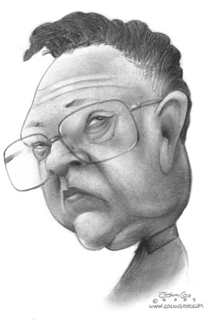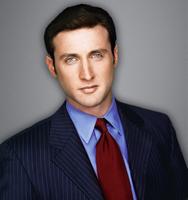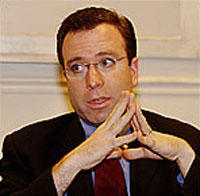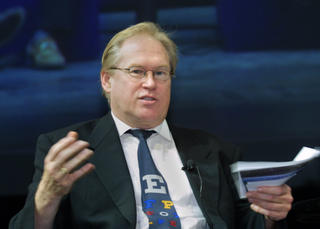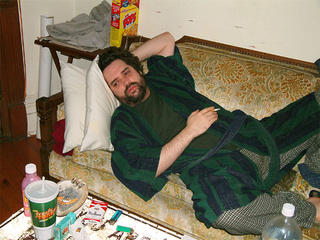Best Meet the Press with Tim Russert this morning, Sunday 25, 05, in years. Three NY Times Columnist, arguably the best three, David Brooks, right, Maureen Dowd, left, and Tom Friedman, often the middle, spoke on recent events. I'm going to just copy paste some quotes, using initials for the columnist, db, md, and tf.
But PLEASE I urge you go to the transcript, read it through, and let me know what you think.
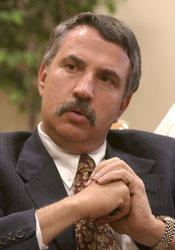
tf: Well, I believe 9/11 truly distorted our politics, Tim, and it gave the president and his advisers an opening to take a far hard right agenda, I believe, on taxes and other social issues, from 9/10, that was not going anywhere from 9/10, and drove it into a 9/12 world. It put the wind at his back. And Katrina brought that to an end. It put the wind in his face. And I believe that unless the president steps back now and does what I would call his own version of Nixon to China, that is, a fundamental recasting of his position and his administration, I think this is not going anywhere.
What's really struck me in the last couple of weeks is how the whole--the tectonic plates of politics in this country have all shifted to the left. That is, people on the far left who dislike the president hate him even more venomously. People in the sort of center left who, you know, weren't happy with the president, you know, now hate him. People, you know, left of center now dislike him. And people right of center now, many Republicans, I think, are wondering where is this going? So I think we've seen a fundamental shift now that the winds of Katrina are in this administration's face rather than the winds of 9/11 at its back.
tf: Well, I think there was a huge amount of projection after 9/11. We really wanted to believe, you know, that the president knew what was going on, had a plan for what was going on and how to respond to the events of 9/11 and Iraq afterwards. Because in moments of insecurity, that's a very natural thing. You want to project onto your leader. Surely he knows what's going on on WMD or any of these other things. And I think what Katrina has done, Katrina in combination with the rising deficit, in combination with an Iraq War not going well has really ripped the curtain away and we see the guy back there behind the curtain like in "The Wizard of Oz," and I think there's a lot of people now stepping back and saying, "Oh, my God. Maybe he doesn't know what's going on."

db:No. Listen, George Bush, his administration, has spent more on domestic discretionary spending, non-defense spending, twice as much as Bill Clinton, more than Lyndon Johnson. It is not what Republicans expected. I put most of the blame on Congress. But I wouldn't say--I mean, I think it's a mistake to say it's all about Bush. I sort of differ with Tom in that the party--the country has shifted left. I'd say the country has shifted in a direction where it wants authority. What 9/11 exposed was a desire to have authority, some authorities we could trust. Since 9/11, we've had a whole series of cascading authority failures: the WMD failures, the Iraq failures, the church failures, the accounting failures, now the Katrina failures, which wasn't just the failure of Bush. It was a failure up and down government.
There are agencies in Louisiana and New Orleans that were built to respond to a hurricane. This was the most anticipated natural disaster in American history and we failed on every single level. So what we've had is a whole series of institutional failures, starting with the president, but going up and down. So to me, I think there's a huge moment. I think things really--people are impatient and want to reject the president and get to something different, but I wouldn't say it's left-right. I'd say what they want is order and authority, and if I were thinking of a candidate, in a way those would be the words I'd want my candidate to project.
db: The haters. You know what? You look across the party and you see some Democrats who really are working on policy ideas. I think of John Edwards, Steny Hoyer, one of the House leaders who had a foreign policy document come out this week. But most Democrats seem to be acting as if the main problem with the country is that the country doesn't hate George Bush enough. And if we only shout louder, they'll hate him more like tourists in Paris who think they'll understand us if we scream a little louder. And to me, it's led to the brain death of the Democratic Party. I don't know where the party stands on Iraq. I don't know where it stands on entitlement spending. On issue after issue, I really don't know where that party stands. So we're having a joint race to the bottom here between the two parties, and I think the result is what you're seeing is a dealignment. Voters flaking off the Republicans but not going over to the Democrats. They're just sort of stuck and floating in the middle. Stan Greenberg, Bill Clinton's old pollster, called them dislodged voters. And to me, that means the '08 election is gonna look very different than the '04 or '00.

md: Well, Hillary's plan has been to lay back and not lead and just let everyone else, all the other Democrats, you know, have stronger voices. But the minute she announces, she's going to have to have a plan about how to get rid of Iraq. I mean, she's actually suggested maybe we should send in more troops and she better have a Nixon-esque secret plan or I think she's in trouble. But I think that, you know, for the Democrats, the problem is that Katrina exposed the incompetence of Iraq and Americans were able to see them on a split screen and the same exact problems existed. They were warned by experts before they went in. They blew it off. They failed to send enough troops early enough to stop the law and order and chaos problems. Then they gave all the no-bid contracts to Halliburton and staffed everything with incompetent Bush loyalists and cronies. So the public can see that this administration has always been incompetent, but the Democrats aren't in a position to take advantage of it because they went along with Bush on authorizing a war based on false premises.
md: Also, Tim, Hillary is going to have to answer the question about why she voted for an invasion that ended up curbing women's rights. I mean, it's not good enough to have women's rights the way we had them 218 years ago with our Constitution which is what they're saying and...
russert: Allowing Islam to be the prevailing religion in the state and allowing husbands to take cases to religious courts.
md: Right. I mean, that's what all the experts predicted and Hillary voted for it anyway.
And much much more here...
The questions and answers pointed and provocative throughout. Read the Transcript.






